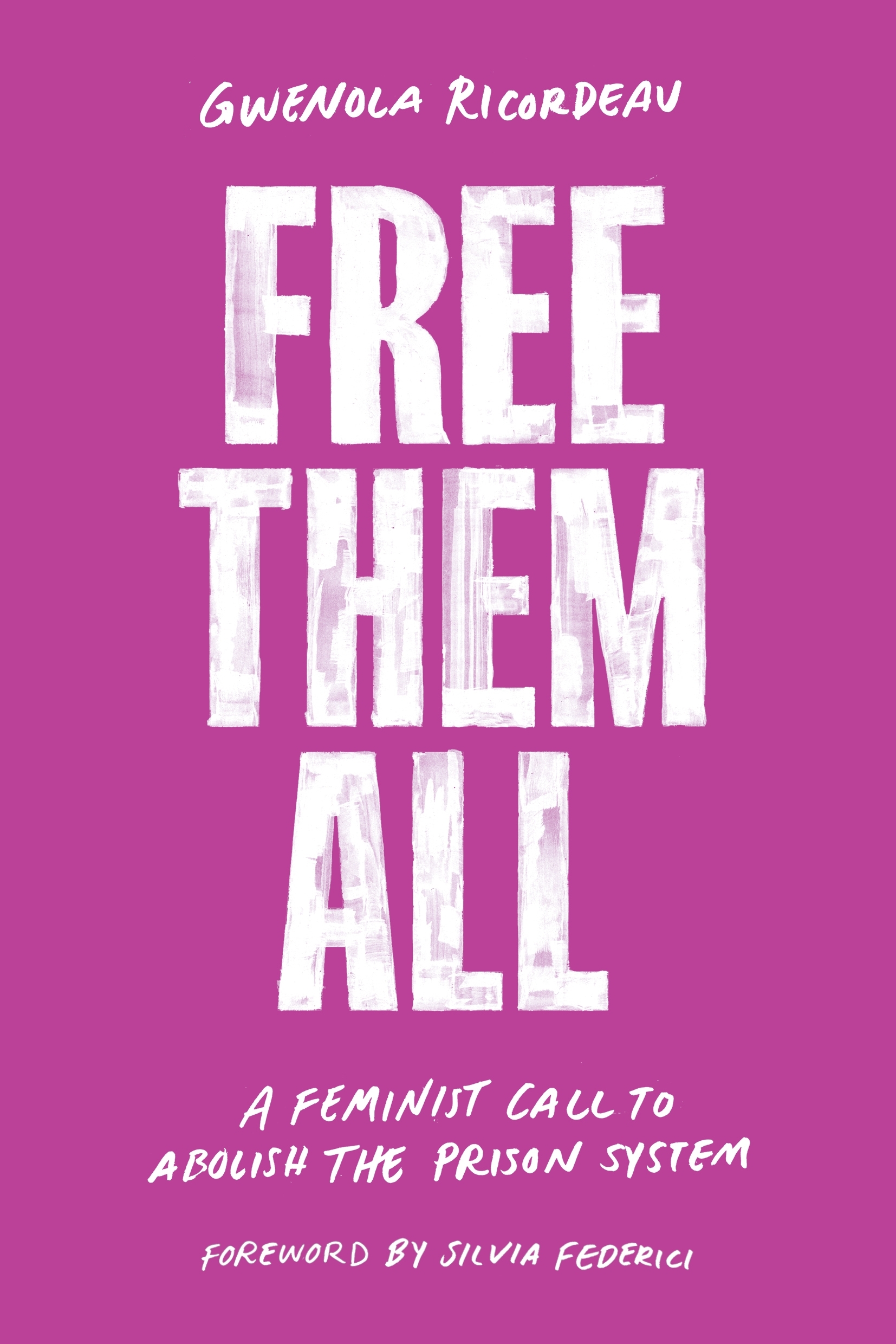The relatives and friends of incarcerated people are rarely taken into consideration by the criminal legal system, except during trials and release proceedings. An accused person’s familial bonds, and their quality, are commonly examined during a trial, in particular for serious crimes. During public hearings, and especially in exchanges surrounding the accused person’s character, there are often insinuations that their relatives might bear certain forms of responsibility for the criminal activity. Relatives of the accused, however, are rarely unaware of what’s at stake during a trial, nor of the source of this temptation to, in Jacques Donzelot’s words, “police families.” Mothers, partners, and wives frequently feel that they face just as much scrutiny as their relatives (whom the prosecution often attempts to portray a priori as “bad husbands” and “bad fathers”), which leads to feeling guilty by association, because they were, for example, “bad mothers” or “unsupportive wives.”
During prerelease proceedings (which include conditional release, furlough, etc.), the family bonds of incarcerated people are examined again. In France reports drawn up by prison social workers (CPIP), as well as sentencing judges’ decisions, often allude to the role of male prisoners’ partners in the process, especially within the framework of the traditional notion of being “guarantors” of their “reintegration.” Relatives and friends often serve as examples of positive influences. But to correspond to the image of the “woman savior” and serve as a “stabilizing force,” they must be “supportive,” “maternal,” and “stable.” They are, however, sometimes reproached for not maintaining regular contact, or for not “really” knowing their incarcerated partner, especially if they met them while they were incarcerated and thus have never lived with them on the outside.
Confronted—against their will—by the judicial and prison system, and then destabilized and stigmatized by these interactions, relatives and friends of prisoners are often considered both accomplices and victims. They are concurrently confronted by two ambiguous and sometimes contradictory demands of the criminal legal system: to be responsible for the convicted person on the one hand, and then supportive of the incarcerated person and act as guarantor post-release on the other. Analysis of institutional discourse, such as the documented narratives of relatives and friends of incarcerated people, suggests that what they feel is required of them, in the end, is less their solidarity than their penance.
Relatives and friends of incarcerated people often describe suffering caused by a lack of consideration from prison administration and staff, which is especially evident in the limited information they receive concerning transfers, illnesses, and even deaths. The ignorance in which relatives and friends are kept echoes a phrase often uttered inside: “We know when we enter, but not when we leave.” Staff and administrative attitudes are often received, by relatives and friends, as insults, or even punishments, which is what they mean when they say things along the lines of “we are also in prison,” or when incarcerated people say, “For me, it’s not so bad; it’s hard for my family.”
The sentiment that the criminal legal system is inhumane, viscerally felt by relatives and friends of incarcerated people, results, at least partially, from the random forms of control to which they are subjected and from the uneven application of regulations. Certain things are permitted in one institution and prohibited in another, even in France, where the implementation of a new set of European prison rules in 2006 sought to standardize regulations. Furthermore, many decisions have an arbitrary or discretionary aspect: how and when visitor permits are granted, whether or not permission to bring in clean laundry and books is given, or the degree to which there is surveillance during in-person visits. Additionally, the practical, social, and financial difficulties faced by relatives and friends are seldom taken into account. Visiting hours, for example, are often incompatible with regular employment hours, and prisons tend to be difficult to access by public transportation.
Visiting conditions, too, are often disgraceful and feel, to relatives and friends of incarcerated people, akin to an additional humiliation. They often say that they are treated “like dogs.” Indeed, visiting rooms are generally dirty and sordid places in which the absence of privacy—including during visits when children are present—is often experienced as an unjustified punishment inflicted on innocent relatives and friends. The repression of intimacy, which is certainly experienced differently according to the length of a sentence and the type of correctional institution in which the person is incarcerated—and the disgraceful conditions in which the few sexual relationships that are allowed take place—are perceived as infantilizing, humiliating, or traumatizing. Because of these conditions and the generally short visiting times, visiting rooms often feel like a “mere formality,” stripping relational bonds of any depth.
Many women lack the necessary resources to deal with a hardship that is, in fact, hardly exceptional. The incarceration of a loved one, especially at the beginning of the sentence, and more so if they are a legal spouse, means taking on new responsibilities in the form of both personal and financial problems. Women are also often forced to take on more domestic work, now from a distance, and emotional labor—which is undervalued—for the benefit of the incarcerated person. In the language of French prisons, a woman supporting her incarcerated partner is said to “follow” him, which echoes what many women feel when they say that the incarceration of their partner has turned them into “prisoners’ wives.”
But the solidarity of relatives and friends is a resource for incarcerated people. Those with support, who have someone waiting for their release, stand in contrast to the indigent. Post-release for the former is incomparable to that of the latter. For incarcerated men, and sometimes even for their fellows, women are a resource because of the many forms of support they can offer from the outside (besides domestic work). In correctional institutions where incarcerated people serve longer sentences, visits represent a true “distinction” between the two groups, just like regular correspondence. Indeed, less than a tenth of incarcerated people in these prisons receive regular visits. (In the United States, less than a third of all people incarcerated in state prisons received a personal visit in the past month.) Overall, bonds with the outside create a sense of pride for the incarcerated, enabling them to face staff members as “a person (a man) like any other.” This arises in part through this access to women, and thus to sexuality (and especially heterosexuality).
More from our decarceral brainstorm
Every week, Inquest aims to bring you insights from people thinking through and working for a world without mass incarceration.
Sign up for our newsletter for the latest.
Newsletter
Although certain forms of control are exercised by incarcerated men over women, such as their availability, some women, paradoxically, gain autonomy when their partner is incarcerated, and thus are no longer “always on their backs.” Prison allows certain women, whether they are forced to work or travel alone for visits, to feel liberated—and sometimes to be literally liberated from harmful heterosexual relationships.
Relatives and friends of incarcerated people do not climb the prison walls. We do not set fire to visiting rooms. Radical press outlets rarely publish anything written by us that might speak to the injustices that we endure, to our sufferings or our hopes. But we, too, resist. Being there, each week, at the prison gates. Sending money every month. Sending care packages when allowed. Lugging bags of laundry over and over. These forms of presence are resistance because prison is there to destroy the bonds that enable incarcerated people to be more than “inmates.” With these bonds they remain friends, colleagues, fathers, sisters, etc. Our presence, and the discomfort we cause by exercising our rights, creates breaches in the prison walls.
Our forms of resistance deserve greater respect. Our status as relatives and friends of prisoners makes us vulnerable. Visitor passes always hang by a thread, and these passes are sometimes our most precious possessions. They link us to loved ones. They are our strength and our weakness, and the prison administration, as well as the guards, know this. And so it is particularly unjust that our resistance is often unseen and politically devalued by abolitionist movements, since our actions are dismissed for being motivated by our subjectivity, and/or for the legitimist views that many among us hold.
I know what it costs (not only from a material and financial point of view) to be “present.” We’ve been told a thousand times that “he’ll leave you when he gets out,” and that if “he loved you, he wouldn’t be in prison.” We have learned to ignore stares from passersby as we wait at the prison gates, and how to respond to harmful remarks from social workers and derogatory comments from guards. Our resistance is enduring all of that and still being here.
I have often heard men refuse to visit an incarcerated loved one under the pretext of their incapacity to control their reactions when faced with prison, and the contempt of the guards in particular. This is a way of communicating that we women who go to the visiting rooms and cherish our visitor passes are less radical than these men, and that agreeing to respect the rules there, where access is conditional, means accepting the existence of prison. But we accept it no more than the people who refuse to visit their incarcerated loved ones due to their sense of radicalism and of themselves. That, however, is a poor understanding of what the visiting room—and prison—is. Where else are the rules as systematically disputed, contested, and subverted?
There are many forms of resistance undertaken by relatives and friends. Some women throw themselves into judicial and media battles on behalf of their husband or child (often a son), while others draft petitions denouncing the behavior of guards, or of a sentencing judge who does not grant enough early releases. There are also some women who dispute policies that allow guards to search their bags when entering prisons, or who refuse to leave visiting rooms. But these forms of resistance are often invisible, because cases of collective resistance are rare and sporadic. They are also often denigrated because they fall short of an act of violence that might evoke images of the walls coming down.
From Free Them All by Gwenola Ricordeau, translated by Emma Ramadan and Tom Roberge, published by Verso Books. Copyright © 2023.
Image: Majid Gheidarlou/Unsplash


